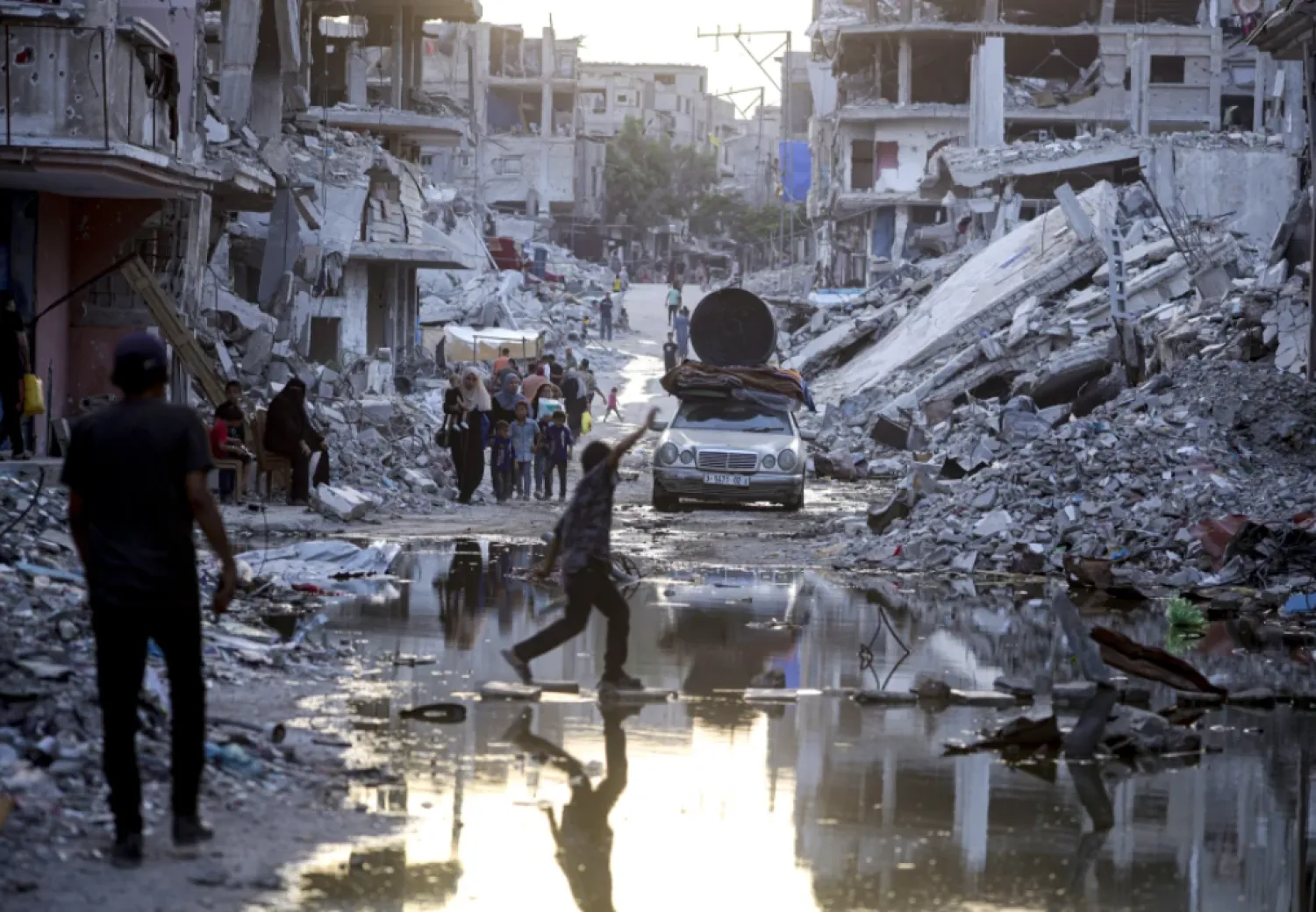Polio vaccines for more than 1 million people have been delivered to Gaza, Israel's military said Sunday, after the first confirmed case of the disease in the territory in a quarter-century, The AP reported.
It was not immediately clear how, or how quickly, the more than 25,000 vials of vaccine would be distributed in Gaza, where ongoing fighting and unrest have challenged humanitarian efforts during more than 10 months of war.
Other polio cases are suspected across the largely devastated territory after the virus was detected in wastewater in six different locations in July.
Aid groups plan to vaccinate more than 600,000 children under age 10 and have called for an urgent pause in the war to increase vaccinations. The World Health Organization and the United Nations children’s agency have said that, at a minimum, a seven-day pause is needed.
The UN has aimed to bring 1.6 million doses of polio vaccine into Gaza, where hundreds of thousands of displaced Palestinians are crowded into tent camps lacking clean water or proper disposal of sewage and garbage. Families sometimes use wastewater to drink or clean dishes.
Polio is highly contagious and transmits mainly through contact with contaminated feces, water or food. It can cause difficulty breathing and irreversible paralysis, usually in the legs. It strikes young children in particular and is sometimes fatal.
The new statement by the Israeli military body responsible for Palestinian civilian affairs said five trucks with special refrigeration equipment for vaccine storage were brought into Gaza on Friday in coordination with the UN. The vaccines arrived Sunday.
The statement said vaccinations will be conducted by international and local medical teams at “various locations” in Gaza, in coordination with Israel's military as part of “routine humanitarian pauses” to allow people to reach health centers.
The statement said more than 282,000 vials of the polio vaccine have been brought into Gaza since the war began in early October.
The territory’s health care system has been devastated, and workers are overwhelmed. Only about a third of Gaza’s 36 hospitals and 40% of its primary health care facilities are functioning, according to the UN. But the WHO and UNICEF say their vaccination campaign will be carried out in every municipality in Gaza, with help from 2,700 workers.
Before the war, 99% of Gaza’s population was vaccinated against polio. That figure is now 86%, according to the WHO.









